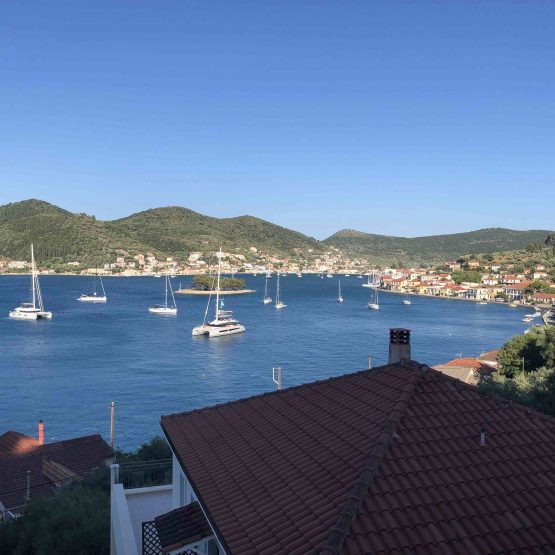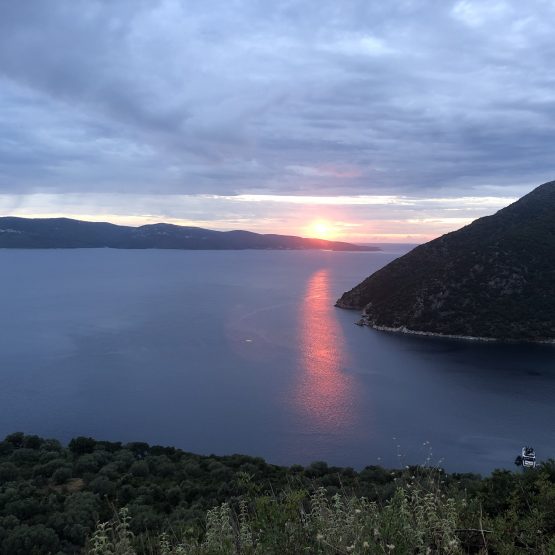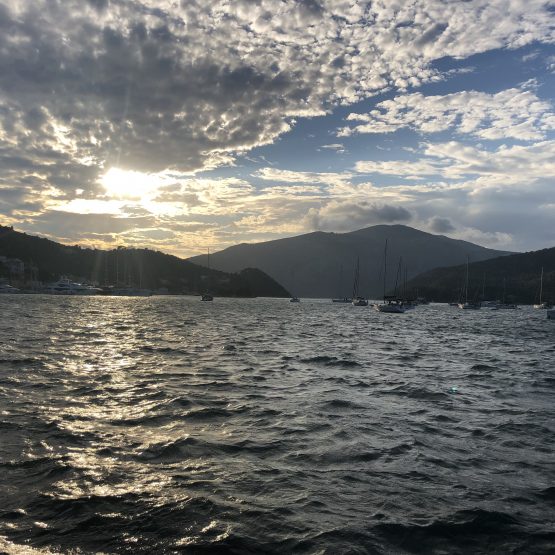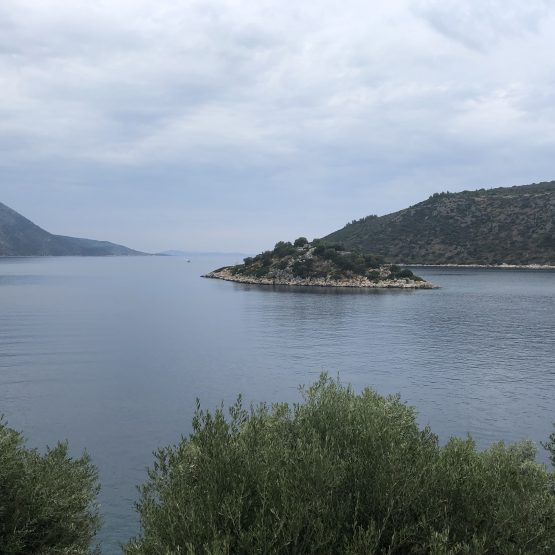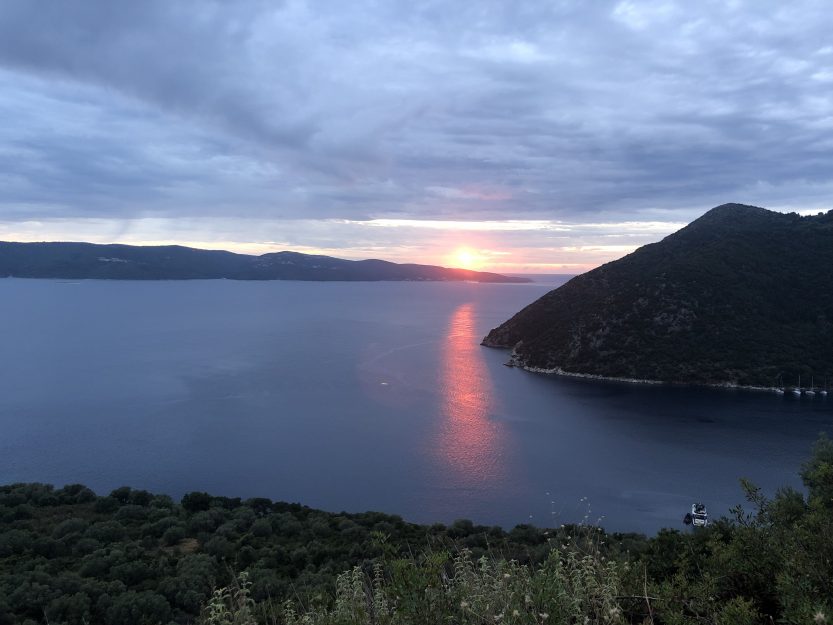
And there was the Port of Aetos.
The ferry docked by way of a cleat hitch around a horn cleat helped by a worker at the port.
Tom disembarked the ferry and set his feet on the Island of Ithaca; he had returned.
Port Aetos was deserted if it weren’t for the travellers, the vehicles waiting for the travellers, the ferry itself, a pop-stand operated by an old woman, and a few construction workers laying cement in a twenty-by-thirty rectangular perimeter that lay on the wharf.
Tom accessed a map software on his phone to check the distance he was to walk. He was staying in Vathy tonight and chose not to risk imposition by asking his host for a ride from the port.
Seven kilometres, the software read.
Tom snapped shut the waist and upper belts of his rucksack, inverted the tinier knapsack around his chest—four straps covering his shoulders in total—and began the trek up the hill towards Vathy, leaving the port.
Halfway up the tall, winding road, he turned back to the port and took a few photos of the ferry departing. The vessel was on its voyage back to Patras to complete another summer’s day of work when a red Datsun sedan pulled up with its windows down. It was being driven by a middle-aged woman—tanned with brown, slightly curly long hair—leaning partly out the driver’s side window.
“Want a ride?”
“I’m going to Vathy,” Tom said. “That alright?”
“I’m going to the north. Can drop you off halfway.” Her English was clear.
Tom unbuckled the straps of his sacks, opened one of the Datsun’s back doors, tossed the sacks onto the backseat and hopped in the vehicle.
“Where you from?” Tom asked.
“Australia.”
“Why are you here?”
“My family is from the northern island.”
“There’s another island in the north?”
“No, same island. But the northern part.”
“Ahh. Greek background?”
“Aye. In the fifties there was an earthquake on the island; a devastating one. Many people lost their homes. The countries of South Africa and Australia were welcoming to those effected. Thousands migrated and many of the families return here in the summer months. Ithaca will always be home.”
The car was up over the hill, winding, bend along bend.
The two made small talk and it wasn’t long until the vehicle entered a cove, a mountain in the distance, and a fork in the road. “Here’s your stop. You go right, I go left.”
“Ahh, thank you for your generosity.” Tom hopped out of the car, opened the backdoor and grabbed his two sacks laying on the seat. As the door slowly began to shut, the Australian-Greek turned to Tom abruptly and hastily stretched her right arm out, palm-up—she was holding two small tawny objects.
“You dropped these,” she said.
“Oh, the elephant and the turtle!” Tom exclaimed with relief. “A man with a kind soul from Senegal came up to me in Athens. His cousin makes them; the material is from the ocean. The Senegalese man said that they bring very good luck to those who hold them.” She gave them back to Tom with indifference, smiled, Tom shut the door, and she drove away.
Good luck was on her way and she didn’t even know it.
The red Datsun drove west and then north around the cove, up the southwestern side of Mount Nirito in a zigzagged pattern through the centre of the isthmus and disappeared into the north.
Tom walked the rest of the way to Vathy.
The hero image is of the sun setting on the Ionian Sea on July 16, 2019. To the left, the Island of Cephalonia; to the right and below, the Island of Ithaca.
The Elephant and The Turtle is available for purchase as artwork at Ithacabound.com.
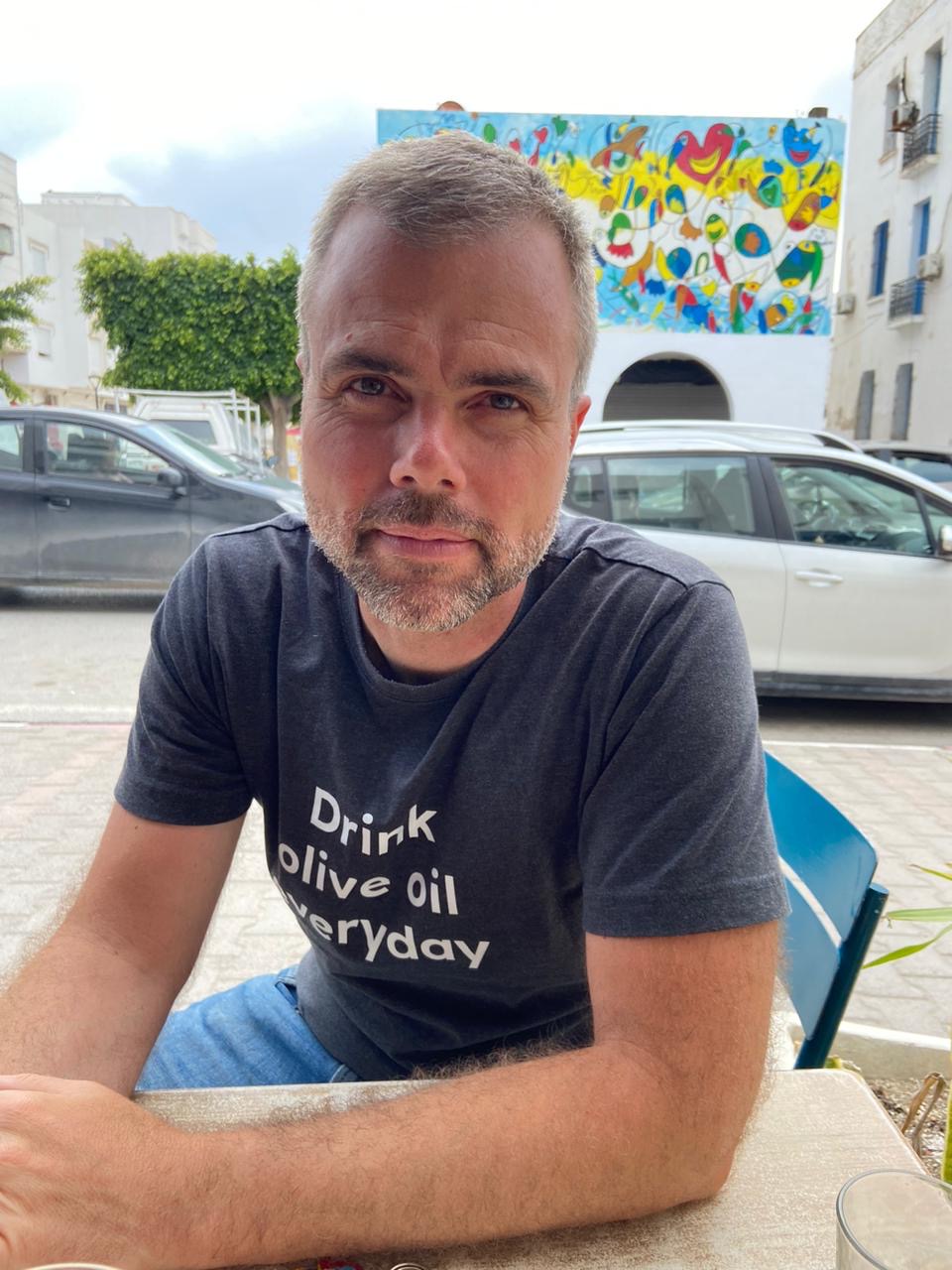
Andrew Schiestel explores and documents the Mediterranean Basin. He was born in Canada.

Andrew Schiestel explores and documents the Mediterranean Basin. He was born in Canada.
